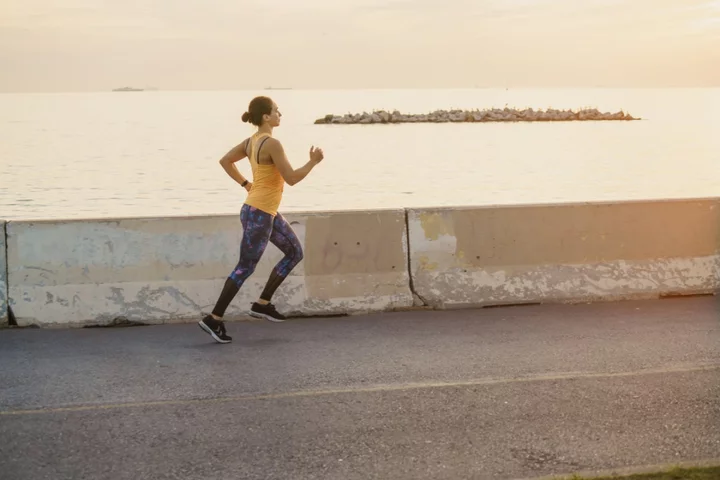
Summer of female sporting events inspires millions of women to get back into the game
A bumper summer of female sporting events has inspired millions of women to get back into sports after years of fear and judgement. Encouraged by competitions such as the FIFA Women’s World Cup, the Women’s Ashes and Wimbledon, 59 per cent of women have started training with an old sports team again. A poll of 2,000 females aged 18-65 found 46 per cent feel motivated to try sport after seeing the empowerment and determination showed by these professional female sporting stars. It also emerged 31 per cent of women over 45 played sports when they were younger but dropped out as a teenager, with being ‘too sweaty’ and not feeling ‘good enough’ to take part among the top reasons. But now, many are dusting off their boots, digging out their racquets and getting back to action. Sure UK, a supporter of women’s sports, commissioned the research after launching the Breaking Limits: Girls Can Football Series, which aims to provide funding and training to give young people access to sport coaches, communities and safe spaces. Former Lionesses goalkeeper Carly Telford, who is partnering on the campaign, said: “Too many women have missed out on years of enjoyment, fitness and socialising due to feeling unable to continue with team sports and it’s about time they feel inspired to get back into the sports they enjoy without fear. “There’s still a long way to go and so much more that we need to do to promote women’s sport in all corners of the world. “To normalise women succeeding on pitches, courts and fields should be everyone’s goal, and both consumers and organisations have roles to play to make this a reality.” The study found there is more to do though, with 77 per cent of women believing that society needs to promote female sporting role models. While 36 per cent worried about being treated differently to men if they were to participate in sports, leaving 64 per cent put off trying sports altogether as a result. But putting worries aside, the future of women in sport looks bright, with the most popular sports they’d like to be involved in named as football (37 per cent), netball (21 per cent) and athletics (15 per cent). A quarter voted netball as the most inclusive sport for women, followed by athletics (15 per cent), and football (15 per cent). And half believe women’s football will eventually be as popular as men’s football – if not more. For 74 per cent, playing as part of a team has worked wonders for their mental health, while 51 per cent said sports has had a positive influence on their life overall. As 46 per cent of those polled, via OnePoll, feel motivated to try a sport after seeing the empowerment and determination showed by the sporting stars. ‘Movement has the power to transform lives’ Alice Duffill, from Sure UK&I, said: “Movement has the power to transform lives. “Everyone should be able to experience all the incredible physical, mental and social benefits movement bring - whoever you are, however you move. “But in our increasingly unequal societies, social, economic, and physical barriers stand in the way. “Inspiring women and girls to play sport through promoting and raising awareness professional athletes who look like them is key in breaking down some of those barriers. “That’s why we’re committed to growing women’s sports as we know the importance of shining a light on professional women athletes to help inspire today’s and tomorrow’s girls”. Read More Study links ultra-processed food and drink to risk of depression in women Study finds women only give themselves 30 minutes of self-care a week Women respond to viral TikTok prompt asking about ‘female version’ of male Roman Empire obsession The cure for smelly garlic breath? Turns out, it’s simpler than you think Teenager’s death after drinking too much water was ‘preventable’ Could bats hold the secret to beating Covid and cancer?
2023-09-27 20:25

Gaby Roslin says she’ll ‘never apologise’ for saying she’s happy post-divorce
TV presenter Gaby Roslin has said she will “never apologise” for telling people she’s happy, after she experienced moments of grief following her divorce. The former The Big Breakfast presenter and author, 59, was married to musician Colin Peel for almost a decade. They share a daughter together. “Not all my life has been joyful. My mum died young. I’ve been through divorce and lost some of my dearest friends,” she told Prima magazine. “You go through those things and you realise that life is precious and, without sounding trite, I will never apologise for saying I’m happy.” Roslin’s mother died just over 20 years ago, around the time she was beginning a new job. The TV star said that it feels like she and her husband of 18 years, David Osman, “fit together”. She shares another daughter with Osman. “We still really appreciate what we have,” Roslin, who presents a show on BBC Radio London along with sints on BBC Radio 2’s The Zoe Ball Breakfast Show and BBC One’s Morning Live, said. “The things that makes it work is that we’re not in competition with each other: We’re very, very different.” Speaking about how “life is crappy for a lot of people”, she added: “I’m someone who has always been very positive and full of laughter, but I’m aware that it’s not something everyone can hold on to. “There are coping mechanisms that have helped me, and I know they can help others, too.” Roslin revealed that some of her personal coping mechanisms have included giving up alcohol five years ago, and going for walks. “There’s a lot of ageism out there,” she said. “It’s no secret in my industry, but it’s everywhere. You can’t do this or that if you’re a certain age. No! I’m lucky that I’ve carried on working, but I have friends who have experienced it. “I know an actor who, at 55, was going for the part of someone older than her and was told that she was too old. They cast a 40-year-old. That’s so wrong.” Roslin is preparing to release her new guided journal, Spread The Joy: Simple Practical Ways To Make Your Everyday Life Brighter, which focuses on stories, illustrations, anecdotes and tips and tricks. The full interview is available now in Prima’s November issue in supermarkets and online at Mags Direct. Additional reporting by Press Association. Read More Sophie Turner and Joe Jonas reach agreement after child custody row Who is Laura Gallacher, Russell Brand’s wife of six years? Everything we know about Katy Perry and Russell Brand’s short-lived marriage Why is my teenager sleeping so much? Sounds that can help you fall asleep better Holidays to the homeland could help children hold onto family’s original language
2023-09-27 18:25
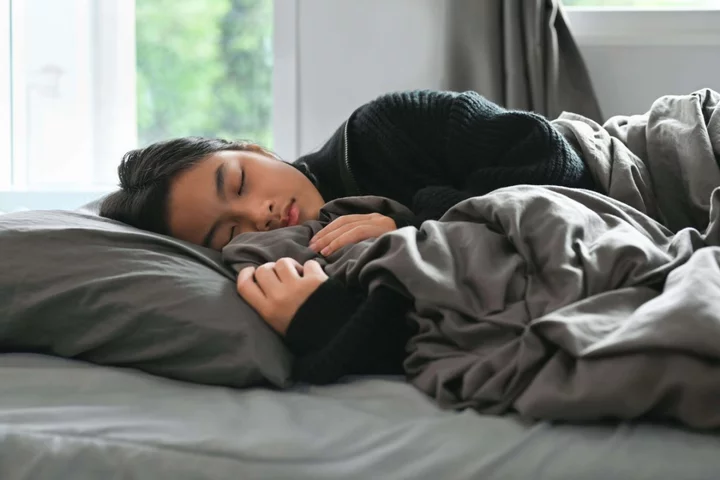
Why is my teenager sleeping so much?
When you think about it, teenagers are a lot like pandas. Like the black and white bears, teens often have a tendency to lounge around for hours, munch their way through massive amounts of grub, and snooze for extremely long stretches. It’s not unusual for youngsters to emerge zombie-like from their bedrooms hours after parents and little ones have arisen on weekend mornings, or have a ‘disco nap’ in the afternoon. But how can you tell if your child’s sleeping habits or typical for a teen – or a cause for concern? How much do teens need? “Sleep research suggests that a teenager needs between eight and 10 hours of sleep every night, so slightly more than an adult or younger child requires,” says Dr Hana Patel, sleep expert at Time4Sleep. “This is because teenagers need additional sleep to support their rapid physical, intellectual, and emotional development.” Chris Tattersall, sleep expert and MD of Woolroom explains: “They are going through a second developmental stage of cognitive maturation. Additional sleep supports their developing brain, as well as physical growth spurts.” However, it’s estimated that most adolescents in the digital age only get about 6.5 to 7.5 hours sleep. Tattersall says: “With the increased use of social media scrolling before bedtime, this is affecting thousands of teenagers’ sleep because the blue light from screens suppresses melatonin levels and delays sleepiness.” What happens if they don’t get enough sleep? “Teenagers not getting enough sleep can lead to all sorts of potential issues,” says Tattersall. Psychological symptoms may include, he warns: “Depression, difficulty concentrating, memory loss, anxiety and low self-esteem.” Plus, there’s the risk of weight gain due to eating more sugary foods to combat tiredness. “Not only does it have negative effects on their general wellbeing but it can also affect their academic performance,” Patel adds. Is it possible to sleep too much? It may seem counterintuitive, but sleeping too much can actually make young people more tired. “Anything over eight to 10 hours of sleep for teens could be considered excessive and may cause daytime sleepiness,” says Patel. “This can negatively affect interpersonal relationships, extracurricular activities, general health and, for older teens, driving too.” It’s important for parents to watch for signs that teens are struggling with sleep. “Look out for concentration difficulties, shortened attention span, memory impairment and lack of enthusiasm or energy,” Tattersall says. “You also might notice moodiness and aggression, poor decision-making, and signs of depression.” Patel says: “Sometimes teens may also complain of symptoms like headaches and migraines.” Try to encourage good ‘sleep hygiene’ in terms of a youngster’s evening routine, meaning avoiding large meals and caffeine before bed and creating a relaxing bedroom environment. “If possible, reduce the use of devices like smartphones and tablets, TVs or computers in the bedroom at night, as the light from the screens interfere with sleep,” Patel says. “If you are concerned about your teenager’s sleeping habits and the effects of this on their health, consult with your GP.” Read More Charity boss speaks out over ‘traumatic’ encounter with royal aide Ukraine war’s heaviest fight rages in east - follow live Kate gives a lesson in autumnal power dressing in a green trouser suit How can I boost my soil when I go peat-free? See Cate Blanchett champion sustainable fashion at glamorous Giorgio Armani show
2023-09-27 16:20
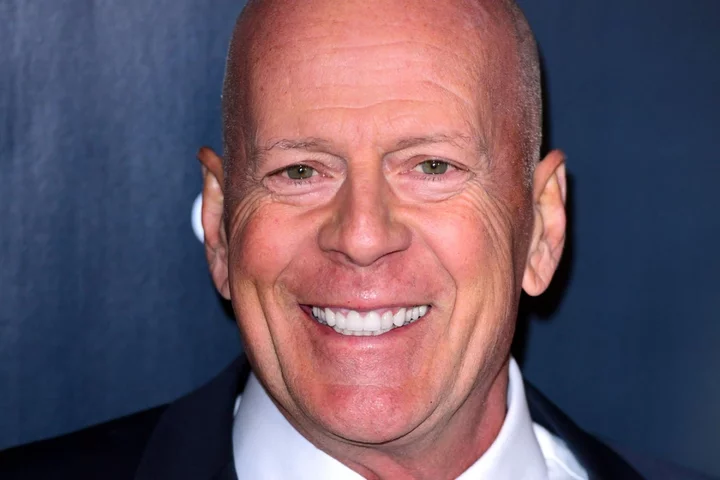
5 signs of frontotemporal dementia: Bruce Willis’s condition explained
Emma Heming Willis, actor Bruce Willis’ wife, provided an update on her husband’s health in a new interview with the Today show. She said being a celebrity does not change the reality of living with a disease like frontotemporal dementia. “You know what I’m learning is that dementia is hard. It’s hard on the person diagnosed, it’s also hard on the family,” she explained. “And that is no different for Bruce or myself or our girls. When they say this is a family disease, it really is.” Willis’ family first announced his diagnosis of frontotemporal dementia in March. At the time, they wrote they had the “deepest gratitude for the incredible outpouring of love” following the initial news. Here we take a closer look at the condition, known as FTD. – What is FTD? FTD refers to a group of illnesses that primarily affect the frontal and temporal lobes of the brain, which are associated with behaviour, personality, and language, per the Mayo Clinic. It’s often misdiagnosed as Alzheimer’s disease or a psychiatric problem, and it often begins between age 40 and 65. FTD accounts for between 10 and 20 per cent of all dementia cases. – What causes FTD? It’s not clear what causes FTD. Certain genetic mutations have been linked to the condition, but many people who develop FTD do not have a family history of the illness. The NHS says that, like other forms of dementia, FTD tends to develop slowly and get gradually worse over the years. – What are the symptoms of FTD? There are two types of FTD – behavioural variant FTD (bvFTD) and primary progressive aphasia (PPA). BvFTD, which results from damage to the frontal lobes of the brain, mainly causes problems with behaviour and personality. PPA, when damage occurs to the temporal lobes on either side of the head nearest the ears, causes language problems. Alzheimer’s UK says that FTD symptoms are “very different” to other more common types of dementia, such as day-to-day memory loss – adding that in the early stages of the disease, many people can still remember recent events. The symptoms can be distressing to family members, as they include lack of judgment, inappropriate social behaviour, decline in personal hygiene, compulsively putting things in one’s mouth, and eating inedible objects. People may also show a lack of interest in their activities, which is sometimes mistaken for depression, and they may exhibit a lack of empathy. – How is FTD treated? According to Dementia UK, there is no prevention or cure for FTD and it is often best to “focus on practical strategies to help the person live as well as possible with the diagnosis”. Willis’ family said that the lack of treatment for the disease was “a reality that we hope can change in the years ahead” with further research. They added that they hope media attention will be used to raise more awareness of FTD. “Bruce always believed in using his voice in the world to help others, and to raise awareness about important issues both publicly and privately,” they said. “We know in our hearts that – if he could today – he would want to respond by bringing global attention and a connectedness with those who are also dealing with this debilitating disease and how it impacts so many individuals and their families. “Bruce has always found joy in life – and has helped everyone he knows to do the same.” Read More Charity boss speaks out over ‘traumatic’ encounter with royal aide Ukraine war’s heaviest fight rages in east - follow live Kate gives a lesson in autumnal power dressing in a green trouser suit How can I boost my soil when I go peat-free? See Cate Blanchett champion sustainable fashion at glamorous Giorgio Armani show
2023-09-27 02:16
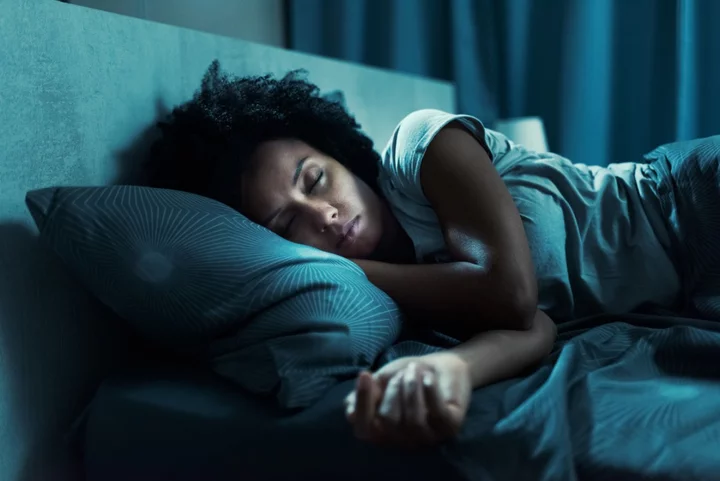
Sounds that can help you fall asleep better
A sleep expert has revealed which sounds help you get to sleep – and which ones are the best to wake up to. Sleep expert Hannah Shore claims ocean waves, a crackling fire and the distant buzzing of a fan are among the top ten sounds that help people fall asleep. Whereas hearing a piece of toast being cut or a kettle boiling is most likely to make them rise and shine gently. It comes after a poll which looked at 2,000 adults, found half enjoy listening to white noise to go to sleep or wake them up. The study, commissioned by Premier Inn, found 26 per cent listen to it every night, with rainfall sounds (40 per cent), music (34 per cent) and the sound of a fan (24 per cent) among the top choices. The hotel chain has launched Nod-Flix: an ASMR channel where guests can have their optimal video and soundscape play as they drift off. Hannah Shore, who is working with the hotel brand in partnership with Silentnight, said: “Depending on the individual, watching or listening to something calming before bed can be part of our sleep process. “Different sounds generate different responses from our subconscious when we’re asleep, so what might be soothing to one, might not be for another. “If you’re sharing a bed or a room, be considerate and invest in a pair of headphones or why not try finding a sound that you both find soothing?” The study also found that if they are sharing a room with other people and unable to listen to their white noise, 27 per cent wouldn’t be able to sleep properly as a result. More than half (58 per cent) normally listen to these sounds or noises on their phone, while 34 per cent tune in via an app. But 15 per cent even have a sound machine. Wind sounds (21 per cent), audiobooks (16 per cent) and a cat purring (seven per cent) also made the list of sounds and noises people like to fall asleep to. It also emerged half of the adults polled feel their sleep varies depending on the season we’re in. And 57 per cent reckon they sleep the best during autumn or winter, compared to only seven per cent who get the best shut-eye over the summer months. Respondents were shown a number of hotel-inspired ASMR type videos from the Nod-Flix channel, from the kettle boiling to a suitcase being pulled along hard floor. It found the sound of sizzling bacon was found to be most relaxing, followed by the trickle of running water from the shower. The study carried out via OnePoll.com, also revealed the sound of a vacuum was surprisingly least calming. Hannah Shore, for Premier Inn, added: “Switching off does not come as easy to some people as it does others and sounds are a great way to help with this. “Some people prefer complete silence whereas to others the silence means they listen out for all the little sounds, in a hotel this can be people walking down the hall, doors closing, the lift. “Others may find they need their brain to concentrate on something else, in these cases there needs to be something in the sounds they can focus on like the slow rhythm of calming music, the repetitiveness of waves lapping on the beach or even the noise of the TV. “This can allow the mind to switch off from the day and therefore allowing you to fall asleep, which we hope the Nod-Flix channel will accomplish for many.” Some noises that help Brits sleep better: Rainfall sounds Music Ocean sounds The sound of a fan The sound of favourite TV show/ streaming service Wind sounds Podcasts Audio Books Jungle/forest/woodland sounds Fireplace sounds Static sounds City ambience Animal sounds A cat purring The sound of a vacuum cleaner Here are some tips for a restful sleep: If you’re going to watch something before bed, make sure it’s calming content Keep the space you’re sleeping in tidy Don’t eat a heavy meal before bed Invest in some bed socks – they help increase blood circulation Make sure your pillow supports your sleeping position Dim the lights – it helps our bodies to produce sleep hormones like melatonin Get some black out blinds or curtains to block out bright lights White noise such as fans, hairdryers, hoovers are great for blocking out sound. If you want to go to sleep in a calmer way, pink noise is also good - think of wind, steady rain and reselling leaves. Green noise is similar to pink but will have an undertone of more constant hissing noise but still nature led such as running streams. To help you focus throughout the day, brown noises such as the crack of thunder which have deeper tones works really well. Read More Sleep expert reveals the simple secret to a good night’s rest Irregular sleep patterns linked to harmful gut bacteria, study suggests What is the 10-3-2-1-0 sleep method? How to spend the perfect healthy Super Saturday – according to science Holidays to the homeland could help children hold onto family’s original language The cure for smelly garlic breath? Turns out, it’s simpler than you think
2023-09-26 20:25
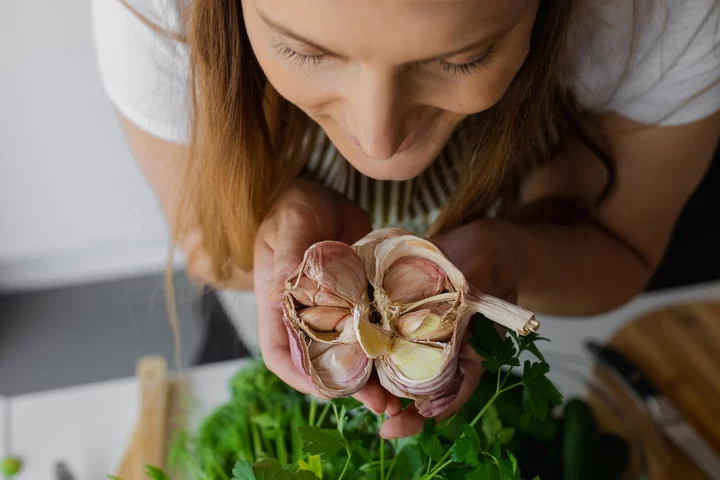
The cure for smelly garlic breath? Turns out, it’s simpler than you think
It’s hard to resist garlic sometimes, but its pungent smell can often last long on the tongue. So what causes it, and how can we get rid of it? Garlic contains a compound called sulfur volatiles that can cause a bad odour after being eaten. Researchers wanted to better understand how yoghurt and its components can eliminate or reduce such strong odours. For the study, researchers from the Department of Food Science and Technology at Ohio State University, Columbus tested the garlic deodourising capabilities of yoghurt and its individual components of water, fat and protein to see how each stood up to the smell. As a result, the team found both fast and protein were effective at trapping garlic odours, leading the scientists to suggest high-protein foods may one day be formulated specifically to fight garlic breath. “High protein is a very hot thing right now – generally, people want to eat more protein,” said senior study author Sheryl Barringer, professor of food science and technology at the university. “An unintended side benefit may be a high-protein formulation that could be advertised as a breath deodorizer in addition to its nutritional claims,” she said. “I was more excited about the protein’s effectiveness because consumer advice to eat a high-fat food is not going to go over well.” In the lab experiment, researchers placed equal amounts of raw garlic in glass bottles and confirmed the smell of the garlic was released in concentrations that would be detected by the human nose. Scientists measured the levels of volatile molecules in gaseous form present before and after each treatment. It was revealed that garlic alone reduced 99 per cent of the major odour-producing raw garlic volatiles. When introduced separately, the fat, water and protein components of yoghurt also had a deodorising effect on raw garlic, but results showed fat and protein performed better than water. Looking at fat’s performance, a higher quantity of butter fat was more effective at deodorisation. The proteins which were studied included different forms of whey, casein and milk proteins, all of which were effective at deodorising garlic. This may be because of their ability to trap the volatile molecules before they are emitted into the air. A casein micelle-whey protein complex performed the best. “We know proteins bind flavour – a lot of times that’s considered a negative, especially if a food with high protein has less flavour. In this case, it could be a positive,” Barringer said. Additional experiments that involved changing the pH of the yoghurt to make it less acidic (4.4 pH to 7 pH) actually appeared to lower the yoghurt’s deodorisation effect on the garlic. However, changing the pH of water did not seem to make any difference on the water’s deodorization effect. “That’s telling me it goes back to those proteins because as you change pH you change the configuration of proteins and their ability to bind. That said we definitely should be looking at these proteins,” Barringer said. “It probably depends on the protein, as well, because different proteins react differently to pH. So that may be an important thing as we look at other proteins for their garlic deodorization effect.” The team also tested the deodorising effect of yoghurt and its components on fried garlic, in the process they found that drying garlic alone can significantly reduce garlic odour. Yoghurt and its individual ingredients neutralised a lower percentage of volatile compounds of fried garlic compared to raw garlic. Study authors think this may be because there were fewer volatiles to trap than were present in the raw cloves. The findings have provided a foundation for future studies on proteins that might help fight the garlic breath. In the meantime, Barringer predicts that Greek yoghurt, with a higher protein profile than the whole milk plain yoghurt used in the study, may be particularly effective at getting rid of garlic breath. Fruit-flavoured yoghurts will probably work, too, she said – and whatever is used, it must quickly follow ingestion of raw garlic. “With apples, we have always said to eat them immediately,” she added. “The same with yoghurt is presumed to be the case – have your garlic and eat the yoghurt right away.” The study was published in the journal Molecules. Read More 11 best mouthwashes that will keep your mouth minty fresh Women less likely than men to receive CPR from strangers, study finds Study finds toxic ‘forever chemicals’ may be ‘intentionally added’ to some period products Teenager’s death after drinking too much water was ‘preventable’ Could bats hold the secret to beating Covid and cancer? Groundbreaking migraine treatment offers ‘new hope’ for patients
2023-09-25 18:49
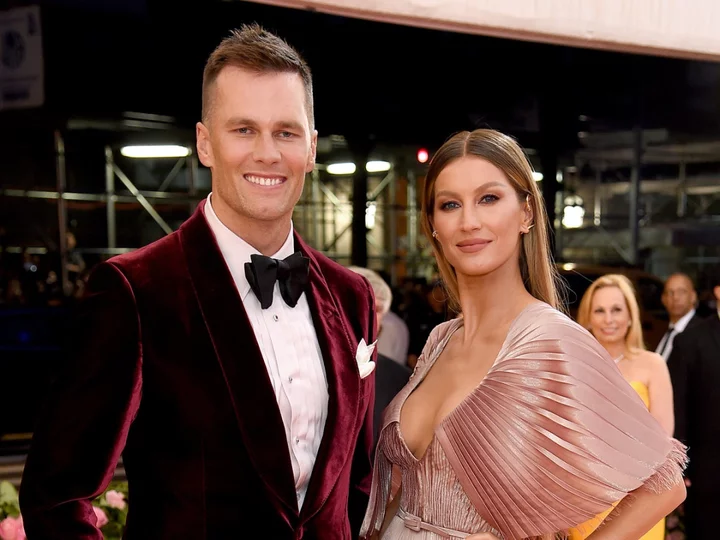
Gisele Bündchen says her divorce from Tom Brady is ‘not what she dreamed of’
Gisele Bündchen has spoken candidly about ex Tom Brady, with the model confessing that their divorce is not something she ever “dreamed of”. The Brazilian model, 43, reflected on getting divorced in 2022, after 13 years of marriage, during a preview of her upcoming interview with CBS News Sunday Morning, which will air on 24 September. After expressing that she wouldn’t “change anything” about the experiences she’s had in her life, correspondent Lee Cowan chimed in and asked: “Not even your divorce?” In response, she noted that while she never thought that she’d get a divorce, after seeing how long her own parents have been together, she’s still come to terms with her split. “I mean, it’s not what I dreamed of and what I hoped for," she said. “My parents have been married for 50 years, and I really wanted that to happen. But I think you have to accept, you know, sometimes that the way you are in your 20s, it’s sometimes you grow together, sometimes you grow apart.” Bündchen went on to acknowledge that the former NFL star will continue to be a part of her life, since they share two children, son Benjamin, 13, and daughter Vivian, 10. Brady also shares a 16-year-old son, John, with ex Bridget Moynahan “I mean, he’s the father of my kids, you know?” she added. “So, I always wish him the best, and I’m so grateful that he gave me wonderful children.” In October 2022, Bündchen and Brady announced they were divorcing after over a decade of marriage. The move also came weeks after it was previously reported that the athlete and former supermodel had hired divorce lawyers. “We arrived at this decision amicably and with gratitude for the time we spent together,” he wrote on his Instagram Story.“We are blessed with beautiful and wonderful children who will continue to be the centre of our world in every day. We will continue to work together as parents to always ensure they receive the love and attention they deserve.” Bündchen later issued a statement of her own to Instagram, writing: “With much gratitude for our time together, Tom and I have amicably finalised our divorce. My priority has always been and will continue to be our children whom I love with all my heart. We will continue co-parenting to give them the love, care and attention they greatly deserve.” In her statement, she acknowledged that the decision to end a marriage is “never easy,” but that she and Brady have “grown apart”. “And while it is, of course, difficult to go through something like this, I feel blessed for the time we had together and only wish the best for Tom always,” she continued. “I kindly ask that our privacy be respected during this sensitive time.” Since the divorce, Bündchen has continued to speak out about her relationship with her ex. Earlier this week, she reflected on the challenges her family has experienced since the divorce. “It’s been very tough on my family. It’s been a lot - in every area of my life,” she said during an interview with People, published on 18 September. After finalising her divorce in October 2022, she relocated her family to Florida for Brady’s three-season stint with the Tampa Bay Buccaneers. While the model has now settled down in Miami, she was reportedly helping her two ailing parents at the same time. “I feel like whenever it rains, it pours,” Bündchen explained to the outlet. “With all the different twists and turns that life takes, all we can do is the best we can given what happens in our surroundings.” During an interview with Vogue Brasil, published last month, she opened up about maintaining a positive outlook on life after her divorce from the quarterback. “I’ve always believed that every situation, no matter how challenging, teaches us something and helps us grow,” she said. “Breakups are never easy, especially when the media is speculating every step of the way. I tried to focus on my children, my health and my projects and dreams.” In March, Bündchen also explained how she and Brady are navigating co-parenting. “We’re not playing against each other,” she told Vanity Fair. “We are a team, and that’s beautiful. I look back and I have no regrets. I loved every bit of it.” Read More Gisele Bündchen opens up about ‘tough’ times nearly one year after Tom Brady divorce Gisele Bündchen reveals why she hasn’t had alcohol in two years Tom Brady responds to viral photo of him at Blackpink concert Gisele Bündchen opens up about ‘tough’ times nearly one year after Tom Brady divorce Gisele Bündchen reveals why she hasn’t had alcohol in two years Dwyane Wade ‘tried to break up’ with Gabrielle Union after fathering baby with woman
2023-09-23 03:59
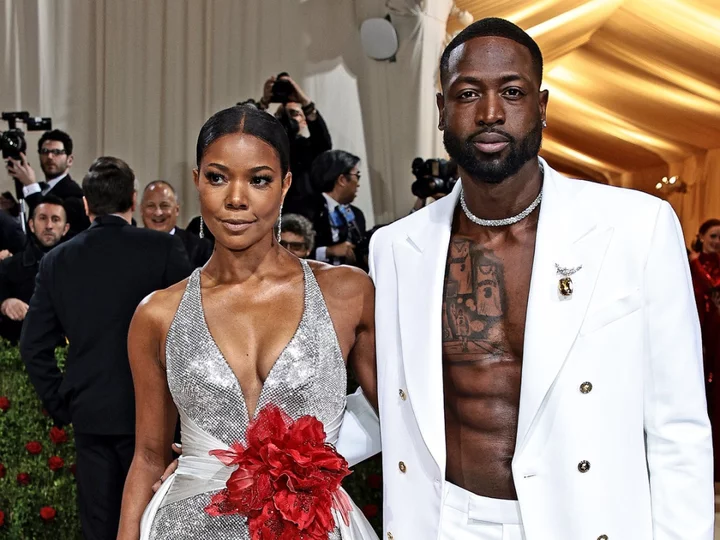
Dwyane Wade ‘tried to break up’ with Gabrielle Union after fathering baby with another woman
Dwyane Wade has revealed that he initially “tried to break up” with Gabrielle Union, before telling her that he fathered a child with another woman. In a recent appearance on Shannon Sharpe’s Club Shay Shay program, the former NBA star, 41, reflected on how he told his now-wife about his son, Xavier Zechariah, who he welcomed in 2013 with Aja Metoyer when he and Union were broken up. He started off by recalling how scared he was to tell Union about him and Metoyer before the news went public. “You know that this is going to hurt someone you’ve been building a relationship and life with,” he said. “You gotta sit with you and you gotta sit with this person if this is who you’re going to be with. I had to sit with my wife and have this conversation.” He went on to praise the Bring It On star for standing by his side, as he told her about having his son in the middle of his busy basketball career. “I couldn’t have gotten through that moment without her sticking with me,” the Olympian said. “We were in the playoffs, I think we were even going into the finals. That was a rough time for me…You got a lot on your mind. You’re keeping something from people you love. It’s heavy.” Wade then confessed that when he first had that conversation, he tried to avoid bringing it up, and even attempted to end things with the actor. “I tried to break up with her. Like: ‘Hey things have been bad lately, we’ve been having a little distance in our relationship anyway,’” he recalled. “I tried all of that.” However, he said that Union “kept showing up” for him, and they continued moving forward. He also acknowledged that since welcoming Xavier, his relationship with his wife “hasn’t been perfect,” before noting that they still “go to therapy”. “We’ve been to therapy, we’ve had shouts about it,” he said, referring to how he’d fathered his son with Metoyer. “We’ve had regular conversations. And so, it’s going to continue to be something that I have to work at and work on. It doesn’t go away because years come, or because I say: ‘Sorry.’” Elsewhere in the interview with Sharpe, Wade also expressed that he’s had concerns for Xavier, explaining that “it’s hard” for his child to be associated with the headlines that came from his parent’s relationship. “It’s going to always be there. He’s done nothing. It’s a stain that’s on him for no reason,” the former Miami Heat player said. After noting that he and his wife are either “going to get through it” or “ain’t going to get through it”, he emphasised that he’s still continued to think about his nine-year-old son, who already “has a negative impact next to his name”. “He hasn’t even had a chance to accomplish something, and he already has a negative next to his name because of how he was brought into this world,” he said. However, he still expressed his gratitude for his family and acknowledged that they’ll “get through” challenges together. Union and Wade went on to get married in 2014, before welcoming their daughter, Kaavia, via surrogate in 2018. In addition to his child with Metoyer, Wade shares two children, Zaire, 21, and Zaya, 16, with ex-wife Siovaughn Funches. He’s also the legal guardian of his nephew, Dahveon Morris, 21. This isn’t the first time Wade has recalled how he told Union about his child with another woman. During his 2020 ESPN documentary, Wade: Life Unexpected, he first described how difficult it was to have that conversation with his now-wife. “Hardest thing I’ve ever had to do is man up and tell Gabrielle Union that I’ve had a child with somebody else. I couldn’t sleep. I wasn’t eating,” he said during the documentary, as reported by Entertainment Tonight. “When you hold something in that you know is going to come out and you have this information and you know it’s gonna f**k somebody’s life up, that you care about, that you love, if it don’t hurt you, then you’re not human.” In her 2021 book, ​You Got Anything Stronger?, Union first opened up about the “trauma” of her husband having a baby with another woman. “It should go without saying that we were not in a good place at the time that child was conceived,” she wrote “But we were doing much better when he finally told me about the pregnancy. To say I was devastated is to pick a word on a low shelf for convenience.” Despite her devastation, the actor acknowledged that there have been countless people who have been upset with her decision not to talk about the birth of her husband’s son, with Union explaining that she had “not had words”. “There are people – strangers I will never meet – who have been upset that I have not previously talked about that trauma. I have not had words, and even after untold amounts of therapy I am not sure I have them now,” she wrote. Read More Dwyane Wade recalls daughter Zaya Wade being ‘scared’ and hiding from him after coming out Gabrielle Union reveals how she conquered her fear of being a ‘bad mom’ Dwyane Wade says his family left Florida because anti-trans laws made it so they ‘would not be accepted’ Katherine Heigl opens up about decision to raise children in Utah Researchers link ultra-processed food and drink to risk of depression in women Shakira opens up about co-parenting her two sons with ex Gerard Piqué
2023-09-23 00:15
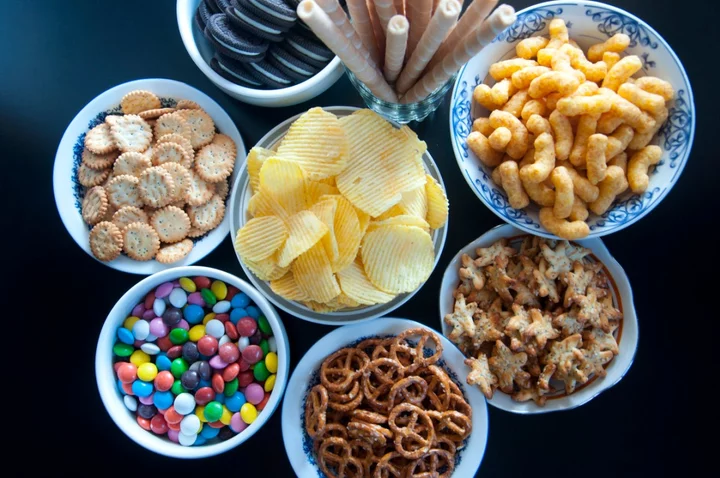
Study links ultra-processed food and drink to risk of depression in women
Consuming large amounts of ultra-processed foods could be linked to depression, according to a new study published in the Journal JAMA. Ultra-processed foods are usually high in salt, sugar, hydrogenated fats and additives. This includes ice cream, sausages, crisps, biscuits and soda. The study looked at the eating habits and mental health of more than 31,000 female nurses as part of the Nurses’ Health Study II, a long-term research project on various aspects of women’s health. To better understand the links between depression and foods, researchers started the study before participants reported any symptoms of depression and then followed them over time. This allowed the team to make a connection between a person’s diet and their mental health. Results showed women who consumed over nine portions a day of ultra-processed foods had a 50 per cent higher risk of developing depression than those consuming four portions or less. Participants who consumed a high amount of foods and drinks that contained artificial sweeteners had a particularly negative outcome, the study found. "Participants with high UPF intake had greater BMI, higher smoking rates, and increased prevalence of comorbidities like diabetes, hypertension, and dyslipidemia and were less likely to exercise regularly," the study said. “Experimental studies have shown that artificial sweeteners may trigger the transmission of particular signalling molecules in the brain that are important for mood,” the authors continued. Professor Andrew Chan, chief of the clinical and translational epidemiology unit at Massachusetts General Hospital and co-author of the research, said: “The strength of our study is that we were able to assess diet several years before the onset of depression,” according to The Guardian. “This minimises the likelihood that our findings are simply due to individuals with depression being more likely to choose ultra-processed foods.” In a 2022 study, researchers linked ultra-processed food and cognitive decline. CNN reported that the study found eating those foods may affect parts of the brain that control executive function — such as the ability to process information and make decisions. The research also found that men and women who ate the most ultraprocessed foods had a cognitive decline rate 28 per cent faster than those who did not eat those foods. They also had a 25 per cent faster decline rate of their executive functions than their peers who did not eat ultraprocessed foods. What are the symptoms of depression? According to the Cleveland Clinic, some of the symptoms of depression include: Feeling very sad, hopeless or worried. Not enjoying things that used to bring joy. Being easily irritated or frustrated. Eating too much or too little — which may result in weight gain or weight loss. Trouble sleeping (insomnia) or sleeping too much (hypersomnia). Having low energy or fatigue. Having a difficult time concentrating, making decisions or remembering things. Experiencing physical issues like headache, stomachache or sexual dysfunction. Having thoughts of self-harm or suicide. Read More Yoghurt could be the cure for bad garlic breath, study finds Study finds link between ultra-processed food and cognitive decline
2023-09-22 23:59
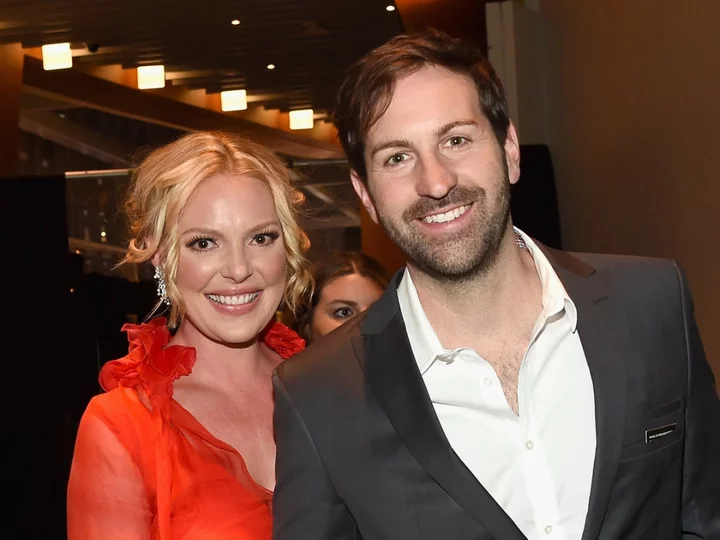
Katherine Heigl opens up about decision to raise children in Utah: ‘The right choice for our family’
Katherine Heigl has reflected on her decision to raise her children away from the spotlight. The Grey’s Anatomy alum, 44, recently opened up about her newfound life in Utah, where she lives with her husband Josh Kelley and their three children: daughters Naleigh, 13, and Adalaide, 11, and son Joshua, six. During Thursday’s episode of Today with Hoda & Jenna, Heigl revealed that the idea to settle down outside of Hollywood actually came from her mother, Nancy. “People might see you and think: ‘I bet you live in Hollywood, where most people live in your profession.’ But I love where you lay down your life,” co-host Hoda Kotb told Heigl, before asking: “What made you decide to do that? And what do you get out of it?” The 27 Dresses star replied: “You know, it’s odd. I think some people are mountain people and I think some people are beach people. I’m sort of a mountain person and have always been that way.” “My mom realised, because we went out to LA when I was 17 and hustled and hustled for years, right? And I think she realised at a certain point that I needed somewhere to escape to and kind of clear my head and that grounded me,” Heigl recalled. “So we started trying to find, and dreaming about trying to find, that perfect place. And we found Utah and then I started making enough money to be able to afford to do that.” Heigl, along with her husband, were able to build their dream home on a “beautiful ranch in Utah”. While the couple expected to use the residence as a quick getaway, the actor and musician began to spend so much time there that it turned into their forever home. “We built these houses in Utah that we expected to be more kind of vacation homes, or when I could get away from the hustle and all the work, and we just started spending more and more time there,” she explained. “It was my husband who finally made it his primary residence on his driver’s license and stuff, and we went: ‘Yeah, I think this is our primary residence. We live here now.’” Kotb and Bush Hager went on to ask Heigl whether she feels “at peace” in Utah, and if it’s been “the perfect place” to raise her children. While the Knocked Up star admitted that their ranch is ideal for her, her children do sometimes wish they lived a busier life. However, Heigl revealed the piece of advice she gives her kids whenever they wish for something more. “I said to them: ‘I understand that you are sacrificing that in some ways but I still think it was the right choice for our family, because I am more centered and aware of what’s going on in your life,’” she explained. “It’s a smaller town, I know who your friends are, who you are spending time with, I know what’s up with school. It’s just easier to keep my finger on the pulse.” The Firefly Lane star went on to share some details about her children, who are growing older right before her eyes. When speaking about her daughter Adalaide, Heigl said: “My 11-year-old is all, can I say this, piss and vinegar. She is spicy.” As for her oldest daughter, Naleigh, she remarked: “My almost 15-year-old, which is blowing my mind. My freshman in high school - I don’t know how it happened. Everyone says: ‘Oh, it goes so fast, it goes so fast.’” “It doesn’t just feel that way, it is. It does,” Heigl emphasised. “You can only hold on to it as much as you can and don’t beat yourself up too much, if you feel like you’re not present enough. It really just goes.” In 2005, the actor met her soon-to-be husband on the set of a music video for Kelley’s song, “Only You”. In a 2016 interview with Billboard, Kelley recalled meeting Heigl for the first time. “I remember the day we met: May 24, 2005,” he said. “I had just bought a house here in Nashville. The day after I signed the papers, I had to fly back to LA to do this music video.” “I showed up that day, we started doing our scenes together, and we just hit it off. We’ve been together ever since that day,” he continued. They were engaged the following year in 2006, and tied the knot at a luxury ski resort in Park City, Utah, in December 2007. Heigl and Kelley became parents in 2009 when they adopted daughter Naleigh Mi-Eun from South Korea. In 2012, they adopted daughter Adalaide from Louisiana and welcomed their biological son, Joshua Bishop Kelley Jr, in 2016. Read More Katherine Heigl says she ‘felt betrayed’ by Hollywood backlash to Grey’s Anatomy and Knocked Up comments Katherine Heigl says she ‘never saw’ daughter Naleigh after adoption Katherine Heigl shares heartwarming photo of kids in celebration of National Adoption Month Researchers link ultra-processed food and drink to risk of depression in women Shakira opens up about co-parenting her two sons with ex Gerard Piqué Comedian Ashley Blaker on why he wants to ‘change the conversation’ around children with special needs
2023-09-22 23:46

Shakira opens up about co-parenting her two sons with ex Gerard Piqué: ‘It’s constant juggling’
Shakira has spoken candidly about co-parenting her two children with ex Gerard Piqué. The singer, 46, opened up about raising her sons – Milan, 10, and Sasha, eight – in an interview with Billboard published on 21 September. She described some of the challenges she had throughout the last year, while managing her responsibilities as both a singer and mother. “The last time I released an album was six years ago,” she said. “Now I can release music at a faster clip, although sometimes I think being a single mom and the rhythm of a pop star aren’t compatible. I have to put my kids to bed, go to the recording studio; everything is uphill.” Shakira addressed how she’s adjusting to being a single parent, after announcing her breakup with the Spanish soccer star last year. She also expressed how important it is for her to be involved in her sons’ lives. “When you don’t have a husband who can stay home with the kids, it’s constant juggling because I like to be a present mom and I need to be there every moment with my children,” she said. “Take them to school, have breakfast with them, take them to play dates. And aside from that, I have to make money.” The “Waka Waka” singer continued to poke fun at the stresses of being a working mother, noting that she’s only had the chance to go to the gym “a couple of times” throughout the last year. She also quipped about needing to take some downtime in the midst of her busy schedule. “I don’t know how long it’s been since I got a massage. I have torticollis!” she said. “Something’s got to give. My neck. My traps. That’s what gives. It’s hard to do everything.” In June 2022, the Colombian singer and the former professional footballer announced their separation after 11 years of dating. Shakira – who recently moved from Spain to Miami with her children – also reflected on ending her relationship with Piqué. She noted that she once believed in that “till death do us part” with her former partner, describing it as a “dream” she had for herself and her children. She acknowledged that while her relationship didn’t work out, she has continued to move forward in the hopes of finding a marriage that’s similar to her parents’ relationship. “My parents have been together for, I don’t know, 50 years, and they love each other like the first day, with a love that’s unique and unrepeatable. So I know it’s possible,” she said. “My mom doesn’t leave my [sick] father’s side. They still kiss on the mouth. And it has always been my example. It’s what I wanted for myself and my children, but it didn’t happen. If life gives you lemons, you have to make lemonade. That’s what I’m doing: making lemonade.” When asked if she’d one day look back on the challenges that she’s faced “in a positive light”, Shakira said she didn’t think that anything “can compensate for the pain of destroying a family”. However, she still said that her family has kept her motivated, as she’s adjusted to everyday life without Piqué by her side. “Of course, I have to keep going for my children’s sake; that’s my greatest motivation,” she said. “But my biggest dream, more than collecting platinum albums and Grammys, was to raise my sons with their father. Overcome obstacles and grow old together. I know I’m not getting that now.” She also told Billboard that throughout the last year, one surprising thing she’s learned about herself is just how strong she is. Shakira specified that she previously thought that she was “weaker,” given how she “used to crumble before the stupidest problems”. “I’d create a drama because I chipped my tooth or that kind of stuff. But maturing, going through truly difficult things, gives you a sense of perspective and empathy,” she said. “You learn how to value the good moments and how not to amplify the bad ones.” In April, the “Hips Don’t Lie” singer first took to Instagram to reflect on her last nine years living in Spain with Piqué, as she announced her move to Miami. “I settled in Barcelona to give my children stability, the same we are now looking for in another corner of the world next to family, friends and the sea,” she wrote in the post, which was translated from Spanish to English on Instagram. “Today, we start a new chapter in the pursuit of their happiness.” Months before her move, Shakira had also opened up about how she’s been prioritising herself and her children. During an interview with En Punto con Enrique Acevedo in February, she said she experienced a change in perspective, confessing that she once believed that a woman needed a man to complete herself. “I’ve always been very emotionally dependent [on men] – I have to confess this. I was in love with love,” she explained. “One way or another, I’ve managed to learn it from another perspective and feel that I’ll be fine on my own. When a woman has to face [hardships] in life, she comes out stronger. When you come out stronger it means you’re learning to recognise your weaknesses and accept your vulnerability.” She acknowledged how “complete” she feels with her children by her side, adding: “I feel like I can depend on myself and I have two kids who depend on me.” Meanwhile, Piqué broke his silence about his ex in March, only months after he went Instagram official with his new girlfriend, Clara Chia Marti. During an interview with Spanish El Pais, he discussed why he didn’t publicly address his breakup with Shakira. ​​“Everyone has their responsibility to try to do what is best for their children,” he explained. “It is about protecting them. That is the job of all parents with children. That is what I am focused on and that is my job as a father.” Read More Shakira spotlights nanny ‘fired’ by ex Gerard Piqué in new music video Shakira attends VMAs alongside her two sons she shares with ex Gerard Piqué Taylor Swift and SZA lead 2023 MTV Video Music Award nominations Taylor Swift and Shakira lead the charge in slit dresses at the 2023 MTV Video Music Awards Shakira attends VMAs alongside two sons she shares with ex Gerard Piqué Comedian Ashley Blaker on why he wants to ‘change the conversation’ around children with special needs
2023-09-22 21:29
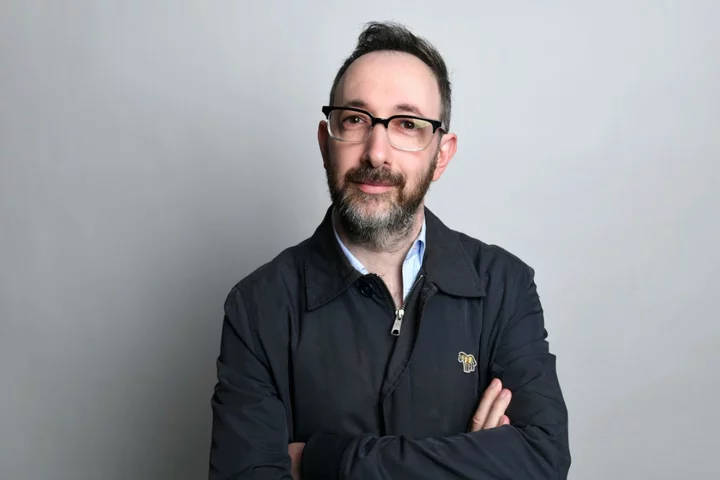
Comedian Ashley Blaker on why he wants to ‘change the conversation’ around children with special needs
Parenting is hard enough when you only have one or two children. So imagine how tough it can be when you have six kids – which is the case for comedian and television producer Ashley Blaker. Blaker, who’s worked on shows including Little Britain and starred in the Radio 4 series 6.5 Children about his family, has six children aged between nine and 19, two of whom have autism and ADHD, and one, who’s adopted, with Down’s Syndrome. But despite the busy load, he’s keeping a smile on his face – although he wholeheartedly admits that family life for him and his wife Gemma, a headteacher, can be challenging, particularly in relation to caring for their 15-year-old daughter Zoe, who has the mental age of a four-year-old. “We’ve really worked hard to support each other, and to make our family work,” he says. “There have been many, many times that things go a bit wrong. We have so much to worry about, it’s actually often the small stuff that gets us. “Being a parent can put you in a vulnerable place, and it can be the very littlest thing that throws everything awry. When a child has a meltdown or the support you were expecting didn’t arrive or whatever, then it can throw a massive spanner in the works.” Blaker, 48, explains that his eldest son Adam, now 19, was diagnosed with autism and ADHD when he was three – he had speech delay and was completely non-verbal until age six, ate a very restricted diet, and “he was very hard to control, very wild – he had a lot of behaviour issues”, his dad shares. His third son Dylan, now 16, was diagnosed with autism and ADHD at age six, and Blaker says both boys’ diagnoses benefitted the whole family. “It’s been a very, very helpful thing,” he explains. “My third son in particular has a very positive attitude towards his diagnosis – he loves having autism, and his diagnosis has allowed him to navigate his life in a more serene way.” The diagnoses have also helped the boys get extra support at school, and medication, and have definitely been a positive for Blaker and his wife as parents. “From our point of view as parents, it’s allowed us to go – ok, we’re not just inadequate parents,” says Blaker. “It would have been very easy to view ourselves as very bad parents, so getting that diagnosis was a very important and positive step towards being kinder to ourselves.” Despite the undeniable challenges of raising the four children they had at the time, the Blakers decided to adopt Zoe when she was two, when many couples may have shied away from adopting a child with Down’s syndrome. Why did they decide it was the right choice for them? It’s a question Blaker can’t really answer, admitting that he and his wife weren’t even considering adoption – but saw a local council advert about Zoe and answered it. It turned out to a life-changing decision both for her and for them, that they have absolutely no regrets. “She brings us unbelievable joy – she’s the greatest blessing in our life,” he says. “She’s in many ways the most impressive member of our family – probably because she’s the only one who shares none of my genes,” he jokes. “There are many challenges, but there’s such a wonderful innocence about her that sets her apart from most 15-year-old girls. She’s not on Snapchat, she’s not on the phone all night, she’s never made me take her to see Harry Styles in concert. She’s an absolute joy to be with – you can make her laugh incredibly easily, she’s the easiest audience in the world.” But despite the absolute joy Zoe and her brothers and younger sister bring to their parents, there’s no denying the Blakers’ family life is a long way from ‘normal’ – which is one of the reasons Blaker has just written a book about his unusual family, Normal Schmormal (HarperCollins, £16.99). “I really wanted to write the book that I wish I’d read 16 years ago, when my eldest son was diagnosed,” he says. “I read a lot around the subject at the time, and it was very depressing and worrying. I wanted to change the conversation a little bit on the subject of children with special needs, from being something depressing and worrying to something that’s positive, and makes our family who we are. Who wants to be normal anyway?” After Blaker finished writing the book, he was himself diagnosed as autistic with ADHD, at age 48. “Especially now I have my own diagnosis, I feel even more that it’s like: who wants to be normal anyway?” he says. “I’d lived with autistic sons over 18 years, but it was somehow only on writing about them and their hyper-fixations and sensory needs and social awkwardness that I thought I could have been writing about myself. “So I thought I’d like to at least find out – I think everyone, children included, has a desire to understand themselves, to know who they are, and explain certain aspects of their life.” So, how did his two autistic sons react when they learned their dad shared their conditions? “My eldest son was completely disinterested,” he says, “but my third son found it kind of funny. His exact words were, ‘I always knew there was something wrong with your semen’. But I do think that for both of them, it’s deepened our bond.” It’s impossible not to admire Blaker and his wife for their dedication to their family and the decisions they’ve made. Blaker concedes that he’s proud of himself – but “even prouder of my children”. He says being incredibly organised and having set routines – which he points out that kids, particularly those with special educational needs, love – has really helped the family over the years. But have he and Gemma ever had time for a break? In the past they’ve taken holidays without each other, leaving the other parent with the kids, just to get time away, he says. But he thinks taking a break is vital for carers, be they parents or otherwise, which is why he’s supporting Sense, the charity for people who are deafblind or have complex disabilities, with a new campaign highlighting the issue. The charity found 65% of carers are burnt-out or exhausted. “It’s really important to get a break, and it’s another reason why diagnoses can be crucial, because it opens up a wealth of help, like respite care,” says Blaker. “There’s a lot of help out there, but those things often need diagnoses. It’s like the magic key that opens everything up.” Ashley Blaker is supporting Sense’s new Give Carers a Break campaign. Read More Charity boss speaks out over ‘traumatic’ encounter with royal aide Ukraine war’s heaviest fight rages in east - follow live Moschino celebrates 40 years of fashion with spectacular catwalk show From tailoring to florals: 5 key fashion trends to know for autumn/winter Cue the damson decor trend to snug up your space
2023-09-22 18:48
